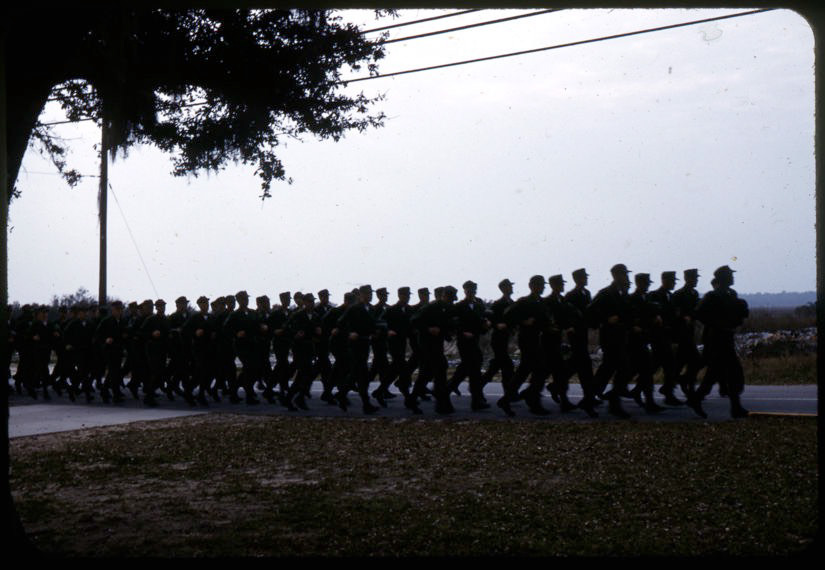
Joined the Marines when I was 18 and it changed my life in a positive way. My life needed changing. I was a below average student in high school, flunked out of
college in one semester and after going to work for my father, he reluctantly fired me.
Dad suggested that I should try the Marines.
He said, “It might improve your discipline and work habits.”
I took his advice.
At my first day in Marine Corps basic training at Parris Island, South Carolina, our two drill instructors went around the barracks and started beating up every single recruit as we stood at attention in front of our bunk beds. The blows involved punches to the midsection and multiple slaps across the face. The punches and slaps didn’t inflict lasting damage, but you had to stand there and take it. It was humiliating.
The two sergeants continued the daily beatings every day for about a month, usually because we didn’t march well. This kind of physical abuse was a violation of Marine Corps regulations and the drill instructors openly told us that it was against the rules. But they added, “This is the way Marines have always been trained. It’s the way we were trained.”
Ultimately, this breaking of the regulations led to a court martial later that summer, and some of us were asked to testify as witnesses for the
prosecution.
Here’s what happened. The platoon had marched poorly on a sweltering afternoon and for some reason, maybe because I was a slouching marcher, one of the sergeants (named Parkin) decided to make an example of me.
When we returned to the barracks, he continued chewing us out. Then suddenly he snarled, “Somebody gimme a bayonet.” One of the recruits quickly ran up, handed him a bayonet, and the sergeant grabbed me by the collar.
This bayonet incident became a disputed issue in the court martial so I’ll give you my version. While still grasping me by the collar with his left hand, the sergeant held the bayonet up against me, under my chin. I couldn’t see the exact position of the weapon since I was tilting my head upward.
Of course, I knew he wasn’t going to stab me in front of the whole platoon. but I sort of pretended to be rattled when he was holding the bayonet up against me. Putting his face next to mine he asked, “Are you ready to die, private?”
“Yes sir,” I replied, respectfully.
That ended it.
He suddenly turned away and handed the weapon back to the recruit from Cleveland who had given it to him. I breathed a sigh of relief. Hated being singled out.
Long story short, the incident came up at the court martial where the two drill instructors Mitchell and Parkin were on trial for abusive behavior. When called as a witness, I told the court that he held the bayonet against my chest. but another recruit testified that the knife was being held up against my throat.
Afterward, the other recruit witness told me, “I remember, you were sort of gagging, tilting your chin upward because the blade
was up against your neck, not your chest.”
Because of this discrepancy in testimony, I was told the judge excluded the incident, threw it out. However, the two drill instructors lost their jobs, which are plum assignments with premium pay. After the court martial, they were transferred to Camp Lejeune in North Carolina. That’s the same base I was sent
to after basic training, and I ran into one of our sergeants (Mitchell) at a bar on the base. I didn’t feel any malice toward him. Frankly I was flattered when he said “Kriegel, I think you’re going to be a fine Marine.”
When I returned home, I told my parents about how the drill instructors broke the regulations by beating up the recruits. My father replied, “Maybe you were that one guy in a hundred who needed a beating.”
After the Marines, I became a better student, won a scholarship and earned two graduate degrees. I think the discipline beat into me during that hot summer at Parris Island actually helped me.
